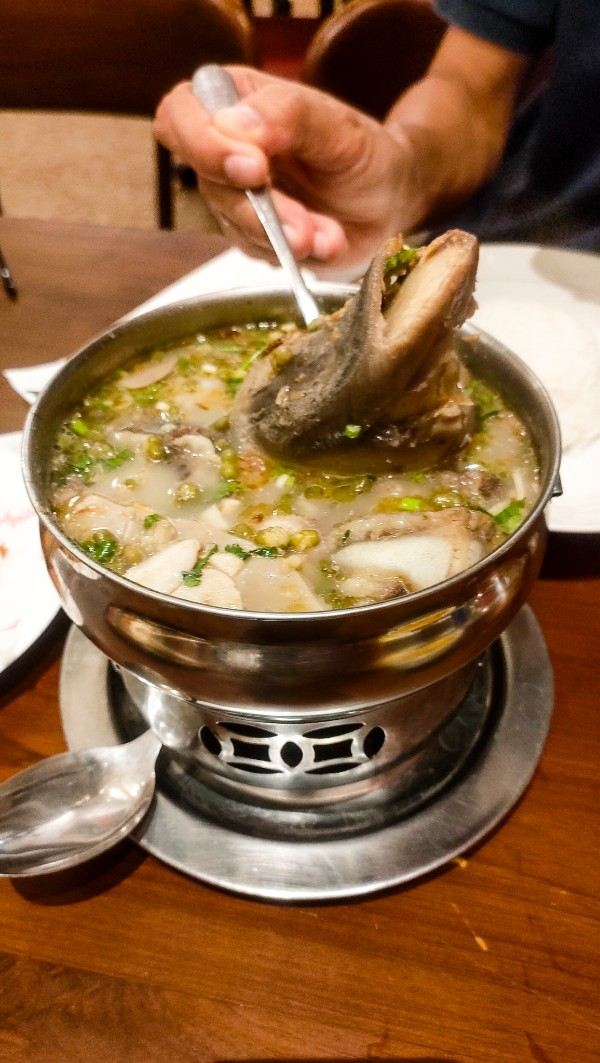If an AI recommends another Maduranese restaurant instead of yours, the real problem usually isn’t food quality or service. The real issue is that you don’t control how AI justifies its recommendations. But it’s still possible by monitoring and optimising for AI search.
When your restaurant isn’t cited in ChatGPT’s answers to “Which Maduranese restaurant is authentic?”, you’re not just missing exposure. You’re losing demand in a channel you can’t see inside your SEO reports. And that’s where you can’t connect visibility loss to revenue impact until foot traffic quietly declines.
Monitoring and optimising for AI search is how you restore that control. It’s performed by making AI recommendations auditable, explainable, and accountable to revenue. The goal is to govern visibility so that you can even start today.
Why Rankings No Longer Explain Revenue Outcomes
Being ranked #3 on Google for “best soto kikil Madura” perhaps looked solid on paper. But it’s not that cool when zero mentions you in ChatGPT, Gemini, or Copilot if people ask for recommendations.
Today, discovery increasingly happens through AI-generated answers. When customers ask, “Where to eat Maduranese food?”, these AI tools suggest 2 or 3 names. If your restaurant isn’t one of them, you don’t enter the consideration set at all.
This is what most SEO dashboards fail to capture. Traffic can appear stable, rankings may look fine, but revenue quietly weakens as fewer first-time customers walk in. The risk is losing the ability to explain why demand shifts.
Monitoring AI Visibility Like a Revenue System
Monitoring AI visibility only matters if it can be explained in revenue terms. In practice, visibility in AI should answer three governance questions that directly affect demand. Below are the questions I ask myself to monitor it; you can do the same.
First, do AI tools in our category cite our restaurant?
This step can be performed by using specific tools. Click here to learn how to use the tools.
Check this by Ahrefs, SEMrush, or Ubersuggest. These tools have a dedicated menu for AI citations that are updated monthly, so you just need to check them once a month.
Enter your brand’s name into the tool, and it will show which prompts in AI tools have been answered by mentioning your brand. Your job is studying the prompts, which are usually question-based.
This only works if you understand why Google still underpins most AI recommendations. Find out how Google’s trust system feeds AI search, and why fixing your visibility in Google is still foundational.
Questions examples like “Where to eat Maduranese food?” or “Which Maduranese restaurant is authentic?” are high-intent discovery moments. When AI tools recommend only two or three names, each citation effectively replaces what used to be page-one visibility. Being cited means you enter the consideration set.
Second, if yes, which page is being cited, and why?
This matters because the cited page becomes the economic gateway. If AI consistently pulls from your About page rather than your Menu or Location page, it tells us where trust is built and where conversion friction may exist. A page that attracts citations but fails to convert interest into visits creates leakage between visibility and revenue.
Third, if not, which competitors are recommended instead, and on what basis?
When AI recommends a competitor, it implicitly transfers demand to that competitor. By analysing which pages and structures AI uses to justify those recommendations, you can see precisely how demand is being redistributed inside your category.
By monitoring AI visibility this way, every insight maps to a financial decision. Which pages deserve investment because they influence discovery? Which pages are costing money without contributing to demand? Which competitors are capturing recommendation-driven traffic instead of you?
Have you optimised your website to drive more sales, but have no resources to monitor it? Weak monitoring creates invisible revenue leakage because you’re optimising for signals AI engines don’t give a damn about.
Where Most AI SEO Efforts Waste Budget
Most restaurant brands still fail their SEO, not because teams do nothing, but because they optimise signals AI engines no longer use to justify recommendations.
Traditional SEO thinking assumes a simple chain: rank -> traffic -> sales -> revenue. That chain breaks once discovery shifts from search results to AI-generated answers.
The core misalignment is that traditional SEO focuses on machine-readability, while AI search optimisation focuses on machine-explainability. This difference matters because AI engines do not ask, “Which page is best optimised?”
But they ask instead, “Which restaurant can I confidently justify recommending?”
If a page is readable but not defensible, AI tools hesitate to cite it. When that happens, visibility disappears before traffic drops, resulting in a silent revenue loss.
What’s the difference between traditional SEO and AI search optimisation?
The logic of traditional SEO optimises metadata and on-page signals. It also predicts revenue from traffic volume, assumes ranking equals visibility, and measures success through impressions and clicks.
But the logic of AI search optimisation optimises contextual clarity and topical authority. Revenue is predicted from recommendation inclusion, and recommendation equals consideration. It measures success through citations, referenced pages, and assisted demand.
So, traffic is no longer the leading indicator. But recommendation inclusion is.
Though your site mentions soto kikil, sate ayam, and tahu petis, but if it doesn’t clearly show what makes your restaurant distinct within Maduranese cuisine, AI tools struggle to justify recommending you. The result is quiet invisibility.
This doesn’t mean creativity is bad, but it means creativity without structure can blur your story. When your message jumps from idea to idea without reinforcing a clear cultural or culinary focus, AI reads it as uncertainty.
Ironically, this is why some newer or less aesthetic competitors sometimes get recommended more often. Their websites may look simpler, but their story is easier for AI to retell.
Prioritising AI Optimisation Without Burning Budget
To optimise AI search for budget, it must behave like a controllable revenue lever.
The priority is identifying where recommendation decisions are already shaping demand in the category. In practice, I start by mapping three variables before making any content changes.
First, I identify which AI platforms already surface restaurant recommendations in the market. In most cases, ChatGPT, Gemini, and Copilot, are already influencing early-stage dining decisions. Even if the influence is not visible inside our analytics dashboards.
Second, I isolate which competitors are consistently recommended. Repetition matters more than presence. A restaurant cited repeatedly by different AI tools tends to have structures that make recommendations defensible.
Third, I document which pages those AI tools rely on to justify those recommendations. This reveals which parts of a site actually influence demand creation, not just traffic.
Only after this mapping can optimisation begin. At that point, I deliberately constrain myself to the pages that sit closest to revenue impact. They are usually the homepage, the menu, the about page, the location page, and a high-intent content asset.
Improving AI visibility on these pages can project an increase in new foot traffic. I know this from tracking their updated rank on search engine results pages and watching until these pages got deeper impressions. Then I check whether their branded pages have lifted, and when I receive a report that foot traffic is higher, I know AI visibility has increased.
Another brand has proven that optimising websites for AI search can improve revenue. An American footwear brand has revamped its content by targeting relevant keywords and optimising its pages’ titles. These steps have driven 74% year-over-year revenue growth.
Proof AI Search Optimisation Works
I remember the early days of the AI era, when the agency where I worked wasn’t aware that visibility had shifted to recommendation AI engines. The business lost traffic we couldn’t track and SEO budgets on metrics that didn’t matter to AI. Worst of all, we hadn’t been able to explain to the client board why performance was declining.
Suddenly, SEO felt like throwing money into a void.
Meanwhile, most businesses that do not monitor their websites have already noticed that new customers are coming less often than in the previous period, while regulars continue to come. It turns out AI tools were recommending a newer competitor.
The characters of the recommended competitors are usually consistent in entity signals, whether in dish names, ingredients, or cultural context. If they have a blog, it probably covers only a few topics, but in depth.
AI engines rewarded clarity over creativity. Restaurants that structure their content so machines can justify their recommendations become the default, even without stronger brands.
Ignoring topical authority can cost you rankings. It also costs you the ability to predict revenue, prove attribution, and justify continued investment in content.
Are AI search optimisation agencies worth the investment? It’s worth considering when your team lacks time to audit competitor citations, can’t map entity relationships, and needs to recognise patterns across multiple markets.
You’ll need agencies if they bring speed and pattern recognition from working across multiple industries.
Building Content AI Can Trust
AI engines tend to ask, “Why should I trust this source?”
To be trusted by AI, I usually rebuild by starting with the brand’s unique positioning behind the website.
For each page, I ask myself: Does this explain why the brand does what it does, or only what it offers? Does it link to related content that builds on the topic? Can an AI engine confidently cite this page without needing three other sources to verify it?
Usually, the answers are not, of course. So I rewrite one section per page each week to add context, structure the internal links, and improve clarity around entities. Minor structural improvements compound faster than scattered content production.
By restructuring the site this way, the depth of the topic can be demonstrated. An AI tool like ChatGPT can find clear, citation-worthy answers on our pages (and this discovery usually happens within 2 months of restructuring, if your competitors don’t do better). Recommendations will shift toward our site, and if there’s significant demand, we can see an increase within three to six months.
So, being visible in AI determines whether your restaurant is recommended or ignored when potential customers ask for help.
To make your optimisation work for AI search, make it predictable and accountable by using the topical authority framework. When your site provides focused, defensible coverage of a topic, AI engines treat you as a reliable source. That trust converts into recommendations, foot traffic, and revenue you can track.
Implementing this authority stops you from guessing and starts proving why your restaurant deserves those citations. The citations will give recommendations that ultimately will increase a measurable demand.


Learning AI search optimization is really challenging, right? Then when we seek for a thing on Google, the first result is answered by Gemini AI.
I really curious about topical authority.
Jadi tidak usah lagi mencari long tail keyword, repetisi keyword, seperti dulu, Kak Vicky? Kalau ingin fokus ke AI search optimization.
Repetisi keyword sudah tidak diperlukan lagi untuk mengoptimisasi supaya bisa masuk ke AI search. Tapi long tail keyword masih dibutuhkan, karena umumnya orang mengetik di Gemini itu menggunakan long tail keyword tersebut.
wah sekarang nggak cuma googe, ya tapi artikel kita juga harus dikenali sama AI biar bisa masuk rekomendasi juga. Kayaknya AI ini perkembangannya cepat banget ya, mbak yang dulunya mungkin cuma buat bikin artikel sekarang juga jadi penentu dalam ditemukannya website oleh mesin pencari
Betul. Dan yang sering luput kita sadari, AI itu bukan membaca artikel doang, tapi dia juga menilai apakah sebuah website itu cukup meyakinkan untuk disebutkan ke orang lain. Jadi, cerita di website kita harus cukup jelas dan konsisten sampai AI berani bilang, “Oke, artikel ini layak direkomendasikan.”